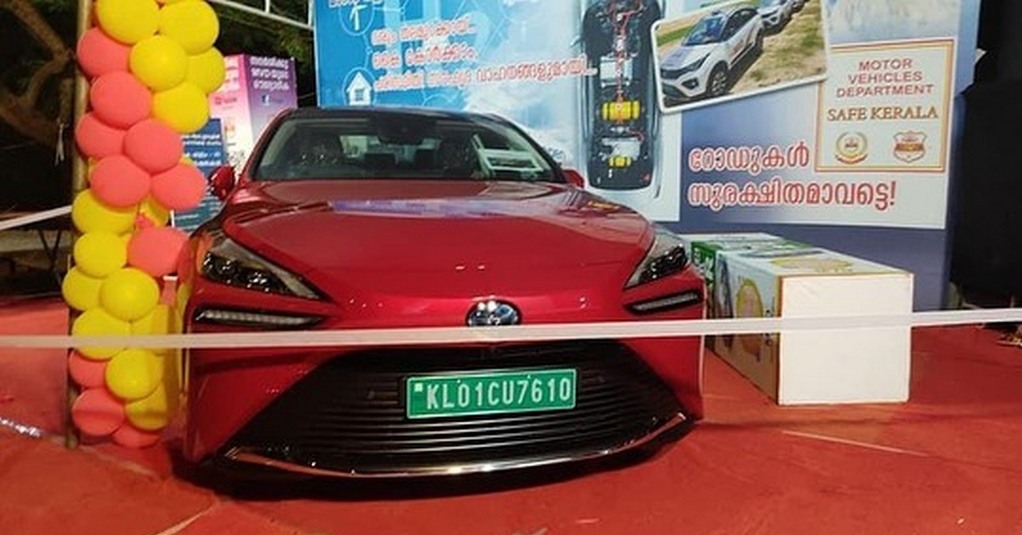Toyota has developed new electrolysis equipment to produce hydrogen from electrolyzing water using the fuel cell (FC) stack and other technology from the Mirai. The equipment will be put into operation this March at a DENSO Fukushima Corporation plant, which will serve as a technology implementation venue to promote its widespread use going forward.
Toyota will accelerate its efforts to build a model for the local consumption of locally produced hydrogen, using electrolysis equipment to produce clean hydrogen and combust it in one of the plant’s gas furnaces.
The hydrogen utilization at DENSO Fukushima will be implemented as a project subsidized by the New Energy and Industrial Technology Development Organization (NEDO).
Toyota has positioned hydrogen as a critical fuel for promoting initiatives aimed at reducing CO2 emissions to contribute to achieving carbon neutrality. In doing so, it aims to promote the use of hydrogen not only through fuel cell electric vehicles (FCEVs) including passenger cars, commercial trucks, and buses, but also through the widespread use of fuel cell (FC) products, such as the development and test operation of FC stationary generators. To this end, Toyota is working with various industry partners in the areas of producing, transporting, storing, and using hydrogen.
Toyota has been using hydrogen for FCEVs, FC stationary generators, production at plants, etc. to date. It has also promoted transporting activities, such as the development and manufacturing of FC trucks for hydrogen transportation. In the future, Toyota hopes to contribute to expanding options for producing hydrogen using biogas generated from livestock manure in Thailand in addition to developing electrolysis equipment.
The electrolysis equipment, which utilizes the FC stack from the Mirai and Sora FC bus, is newly developed equipment that takes advantage of both the technology Toyota has cultivated over many years of FCEV development and the knowledge and expertise it has accumulated from a variety of usage environments around the world. The unit installed at DENSO Fukushima can produce approximately 8 kg hydrogen per hour, with 53 kWh/1 kg hydrogen energy required.
The cells used in the Proton Exchange Membrane (PEM) electrolysis stack are highly reliable, backed by the mass production and usage results of more than seven million cells (enough for approximately 20,000 FCEVs) since the first-generation Mirai was launched in December 2014.
Toyota has used titanium for the stack separator, which was developed for FCEVs and has been used since the first-generation Mirai. It was developed to improve the durability that is required of electrolysis equipment using titanium’s high corrosion resistance maintaining almost the same level of performance even after 80,000 hours of operation so that it can be used safely over a long period of time.
More than 90% of FC stack components for FCEVs and FC stack production facilities can be used/shared in the PEM electrolysis stack production process. This will allow for mass production to achieve a cost level that enables its widespread use. Furthermore, it significantly shortens the development period by using the technology, knowledge, and experience accumulated over many years of FCEV development.
‘ More than 90% of FC stack components for FCEVs and FC stack production facilities can be used/shared in the PEM electrolysis stack production process. This will allow for mass production to achieve a cost level that enables its widespread use. Furthermore, it significantly shortens the development period by using the technology, knowledge, and experience accumulated over many years of FCEV development. ‘
Just as in trucking, where Toyota is using hydrogen gas rather than liquid, in contrast to most everyone else, their idea is to attain volume and low cost through using one basic technology.
Tags: DENNSO, Eloctrolysis, Hydrogen, Toyota



Recent Posts
Scandlines Nears Delivery of Zero Emissions Ferry Following Successful Sea Trials
India faces emission roadblocks with rising net-zero demands
Green Energy Resources invests in two electric Liebherr LHM 550
NYK Launches Continuous Use of Bio LNG Fuel on Car Carriers to Advance Decarbonization Goals
Yang Ming Expands Fleet with Methanol and LNG Dual-Fuel Vessels Under Fleet Optimization Plan
ClassNK Advocates Speed Gap Monitoring to Optimize Fuel Efficiency in Heavy Weather
Wärtsilä’s retrofit package for the Corsica Linea ferry Pascal Paoli has resulted in fuel savings of up to 22 percent Corsica Linea
COSCO Shipping Names Second Methanol Dual-Fuel Containership in Yangzhou